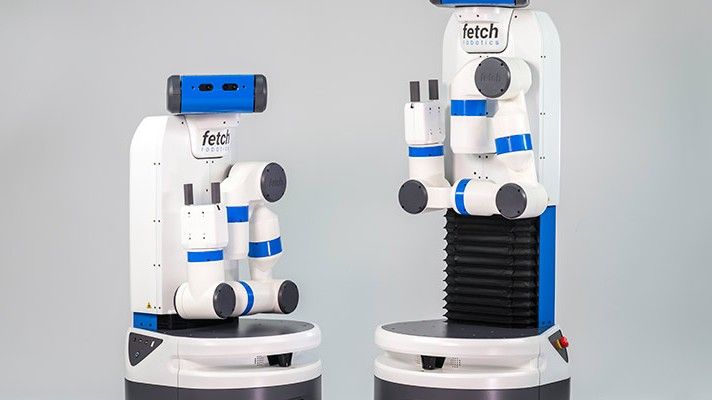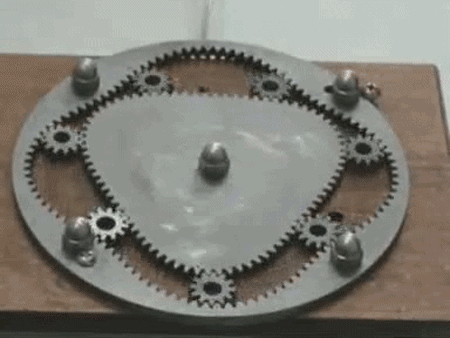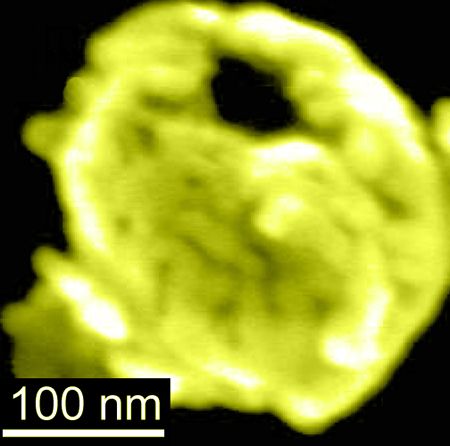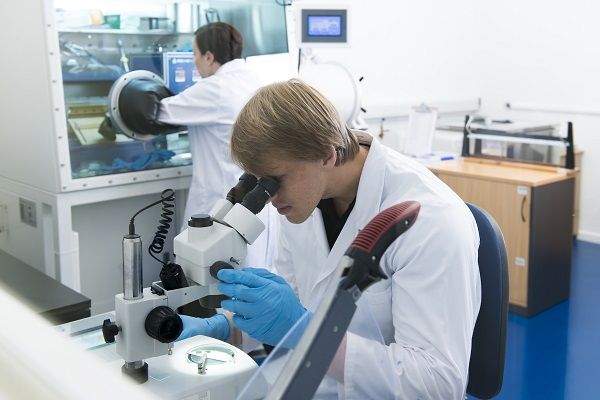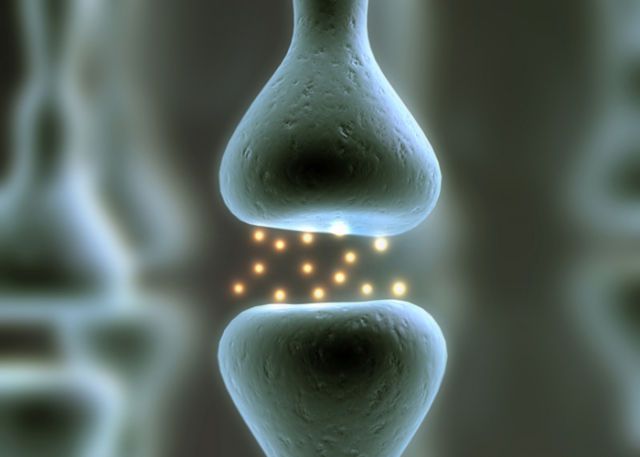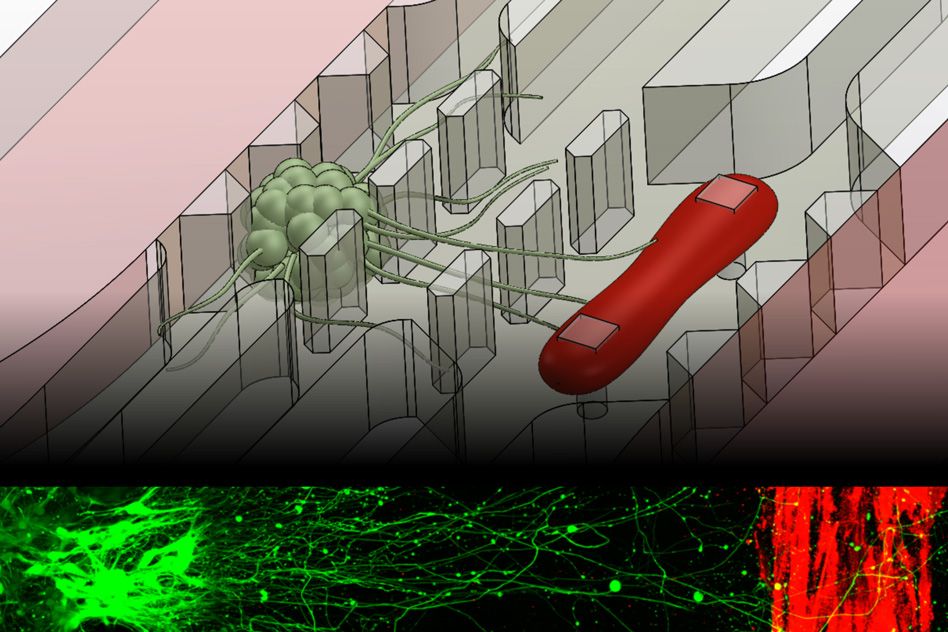
MIT engineers have developed a microfluidic device that replicates the neuromuscular junction—the vital connection where nerve meets muscle. The device, about the size of a U.S. quarter, contains a single muscle strip and a small set of motor neurons. Researchers can influence and observe the interactions between the two, within a realistic, three-dimensional matrix.
The researchers genetically modified the neurons in the device to respond to light. By shining light directly on the neurons, they can precisely stimulate these cells, which in turn send signals to excite the muscle fiber. The researchers also measured the force the muscle exerts within the device as it twitches or contracts in response.
The team’s results, published online today in Science Advances, may help scientists understand and identify drugs to treat amyotrophic lateral sclerosis (ALS), more commonly known as Lou Gehrig’s disease, as well as other neuromuscular-related conditions.
Continue reading “New microfluidic chip replicates muscle-nerve connection” »
